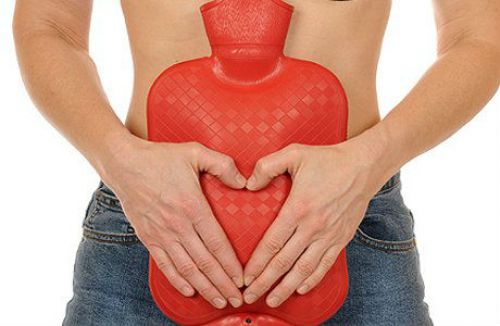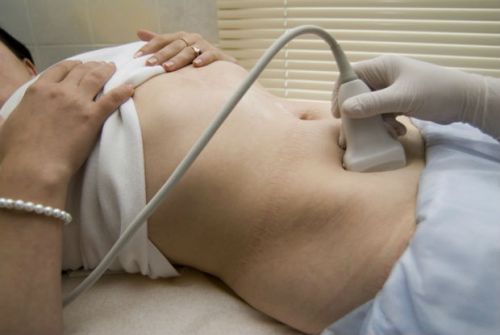A person who asks a question on a medical forum why urine is not flowing, and what to do, of course, should receive an answer from a qualified urologist after a comprehensive medical examination. There are quite a few reasons why you want to go to the toilet, but urine does not go. To be informed in this direction means to have every chance to prevent dangerous pathologies.
Acute urinary retention is a condition of the human body when urine from an overflowing bladder cannot leave on its own due to an existing obstacle. Partial urinary retention is also a painful condition when the bladder is not completely emptied, although the urge to urinate may come one after another.
How does this happen
Before an attack of acute urinary retention, mild soreness, a sluggish stream, weak urination, and other symptoms depending on the cause of the disease state are noted. Initially, with an attack of acute urinary retention, there is an urge to urinate, in which urine does not flow or is excreted in a meager amount. In this case, the patient experiences pain in the lower abdomen, aggravated by movement, urination.
Acute retention of urine in women is often accompanied by discharge from the vagina, in men - from the urethra. Sometimes there are pain in the head, increased blood pressure, vomiting, chills, fever. Examining the patient, the doctor discovers an overflowing bladder. Sometimes you can observe a spherical protrusion in the lower abdomen, pressure on which causes pain.
Symptoms of a chronic problem
In the chronic course of the disease, clinical signs are often absent. The patient is concerned about:
- Heaviness in the lower abdomen.
- Frequent urination.
- Reducing the amount of urine excreted.
- Partial emptying of the bladder.
- Urine comes out in an intermittent stream for 10-15 minutes.

In the case of paradoxical ischuria, the patient may want to urinate with tension in the abdominal muscles and pressure on the bladder
Causes
Medical statistics show that, with the exception of individual cases, acute urinary retention is diagnosed in men. This situation is explained by the peculiarities of the structure of the urinary system: the presence of the prostate, which is often affected by a tumor, urethral strictures resulting from inflammatory processes.
Why is urine delayed in men
The main causes of urinary retention in men are:
- Tumor of the prostate.
- Malignant growth of the genitourinary system.
- Transferred venereal diseases.
- Acute and chronic prostatitis.
- Rupture of the urethra.
- Urethral stones.
Why women don't urinate
Urine retention in women is much less common due to the shorter structure of the urethra and the absence of a prostate. Urine retention in the representatives of the weaker half occurs for the following reasons:
- neurological pathologies.
- Injured spine.
- Transferred operations on the uterus.
- Malignant neoplasms.
- Urethral cysts.
- Urolithiasis disease.
The use of alcohol or drugs can accelerate urinary retention if there is a predisposing factor. An older proportion of people may experience complete urinary retention after therapy with atropine-type drugs.
What do we have to do
Ischuria is a very dangerous phenomenon that requires urgent medical attention. Self-treatment at home can have very negative results. An attempt at catheterization is dangerous with a rupture of the bladder, injuries of the urethra, while there is a high probability of infection, which develops an acute form of pyelonephritis and prostatitis.
The correct way out in this situation is to call an ambulance. Relief for a short time can be achieved by applying heat to the perineal area or immersing in a warm bath, it is recommended to take antispasmodics. To provide medical care, it is important to find out the causes of urinary retention. This will make it possible to correctly determine the methods of therapy.
Help at home
With ischuria, the patient's condition can be alleviated in the following ways. Fold, moisten, wring out the sheet. Put it under your back, holding for 1 hour. After that, apply the same compress to the stomach. On the first day, apply in the morning and evening, on the next - 1 time, when there are signs of emerging ischuria. Grate 2 onions, use gauze to put a compress on the bladder area, holding for 2 hours.
Ambulance for ischuria
If the circumstances are such that it is not possible to get emergency medical care, it is necessary to relieve the spasm and relax the muscles of the bladder. To this end, the following steps must be taken. The patient should drink a glass of not very cold water or chilled mint tea. Well relaxing bath with a decoction of chamomile.

A warm heating pad is placed on the lower abdomen
Regardless of the reasons for urinary retention, it is imperative to catheterize a full bladder. This will be necessary to perform 2 functions: therapeutic and diagnostic, since it is impossible to clarify the diagnosis without urine analysis. Bladder catheterization brings noticeable relief: pain and the urge to urinate disappear.
If for some reason catheterization is not possible, it is advisable to puncture the bladder. In especially severe cases, surgery is performed: an epicystostomy is applied (a catheter with a lead to the abdominal wall). Further therapy is carried out depending on what led to ischuria.
Diagnostics in a hospital setting
To determine what led to the retention of urine, a number of studies are carried out. At the appointment with a urologist, the patient is examined, including palpation, an anamnesis of the disease is compiled. It turns out complete or incomplete ischuria of urine. It is important to differentiate complete ischuria from anuria, when urine is not produced in the body.
With incomplete retention of urine, part of it remains in the bladder. Sometimes the patient does not notice this for a long time, which often leads to stretching of the muscular wall of the bladder, sphincters.
Analyzes are carried out:
- General blood analysis.
- General urine analysis.
- Blood chemistry.

Mandatory hardware studies are: ultrasound, radiography
CT is performed as indicated.
Treatment
For the treatment of ischuria apply:
- Antimicrobials: Furagin, Levomycetin. The same drugs are used to prevent complications during catheterization.
- The bladder is washed with antiseptics.
- In cytostomy, a tube is inserted through the abdominal wall to remove urine.
When ischuria occurs against the background of operations or childbirth, it is recommended to periodically moisten the genitals with warm water. Novocaine is also injected into the urethra, hexamine is injected intravenously.
Herbal treatment
Herbalists advise people who have problems with the urinary system to keep diuretic plants at home: currant leaves, birch buds, dill seeds, horsetail, chicory, parsley.
Proven recipes for urinary retention:
- Recipe 1. Celery juice. Juice is squeezed out of celery roots twisted with a meat grinder. Take for 15 days, 1 tablespoon 3 times a day for 15 minutes. before eating. You can use an infusion: 100 g of crushed root is poured into 300 ml of cold water. Infuse for 7 hours, then take it in the same way as juice.
- Recipe 2. Infusion of parsley. Taken 100 g of washed parsley are poured with boiling water, placed in a saucepan, poured with milk on top, which should be heated in the oven. After straining for 2 days, take a teaspoon every 2 hours.
- Recipe 3. Infusion of currant leaves. The medicine is prepared according to the same recipe as parsley infusion. In addition to the diuretic effect, you can achieve, by taking the infusion, strengthening the immune system.
- Proven diuretics are burdock root and juniper berries. Pharmacy collection of juniper is used. Take in large quantities.
- Honey decoction. Taken 30 g of crushed birch leaves are poured into 500 ml of dry wine, boiled over low heat for 15 minutes, after which 5 teaspoons of honey are added, everything is mixed. The broth is stored in the refrigerator, take 2 tablespoons after meals.

Cowberry juice should be drunk 0.5 liters daily
Complications
Chronic diseases leading to ischuria are often fraught with serious complications, especially for the elderly. Dangerous diseases that occur with urinary retention are:
- Shrinkage of the bladder.
- Rupture of the bladder wall.
- Inflammation of the urinary tract.
- Renal failure.
- Urolithiasis disease.
- Hydronephrosis.
- Cystitis.
- Pyelonephritis.
- Diverticulum in the walls of the bladder.
- Urosepsis.
- Atrophy of the bladder.
Often, ischuria gives relapses. The introduction of a catheter in the vast majority of cases causes inflammation of the urinary tract.
Prevention
To avoid the pathology of the urinary system, the following recommendations must be followed. Avoid injuries to the organs of the genitourinary system. Avoid hypothermia. When treating with drugs prescribed by a specialist, it is necessary to adhere to the norms and duration of medication.
Timely identify and treat pathologies leading to acute urinary retention. Regularly undergo preventive examinations in medical institutions. With ischuria, the prognosis is positive, but it should be borne in mind that there is a high probability of complications from the organs that led to urinary retention.

